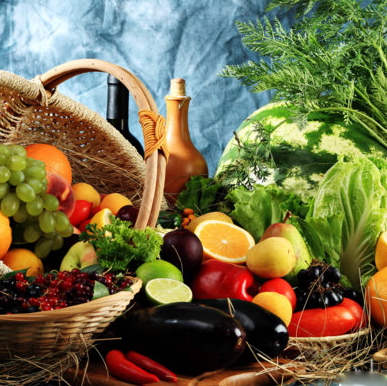Because the harmful effects of pesticides are worrisome, not well understood, or in some cases completely unstudied, it’s wise for us to limit exposure to pesticides whenever possible. Although washing fresh produce can reduce levels of some pesticides, it does not eliminate them. Peeling also reduces exposures, but important nutrients often get thrown away with the peel. The best choice is to eat a varied diet, wash all produce, and select organic when possible to lower exposure to potentially toxic chemicals.
Since many of us can’t always buy organic then it helps to know what conventional foods are safer choices. The Environmental Working Group (EWG) conducted a study to see which fruits and vegetables had the highest and lowest levels of pesticides. The EWG’s computer analysis found that we can cut our pesticide exposure by almost 90% by avoiding the most contaminated conventional fruits and veggies and eating the least contaminated instead. Here’s what they found:
“2011 Dirty Dozen” 
(Most contaminated. Try to buy these organic.)
1. Apples
2. Celery
3. Strawberries
4. Peaches
5. Spinach
6. Imported Nectarines
7. Imported Grapes
8. Sweet Bell Peppers
9. Potatoes
10. Blueberries
11. Lettuce
12. Kale/Collard Greens
(The worst are apples, celery & strawberries.)
“Clean Fifteen”
(Lowest in pesticides, so you can eat them with less concern. Still wash them really well.)
1. Onions
2. Corn
3. Pineapples
4. Avocado
5. Asparagus
6. Sweet Peas
7. Mangos
8. Eggplant
9. Domestic Cantaloupe
10. Kiwi
11. Cabbage
12. Watermelon
13. Sweet Potatoes
14. Grapefruit
15. Mushrooms
(The best are onions, corn and pineapples.)
Reference: Environmental Working Group
Visit www.foodnews.org for a free download to a wallet-size shoppers guide.
My favorite place to get produce is at my neighborhood farmer’s market. It is satisfying to me to know that the money I spend there is supporting local farmers. Many of these growers avoid the use of genetic modification and chemicals and actually use organic methods, even if their farm isn’t “certified organic.” Ask them about it!
Do you have your own vegetable garden? Do you shop at your local farmer’s market? Any suggestions for other readers about dealing with the pesticide issue on a budget?
